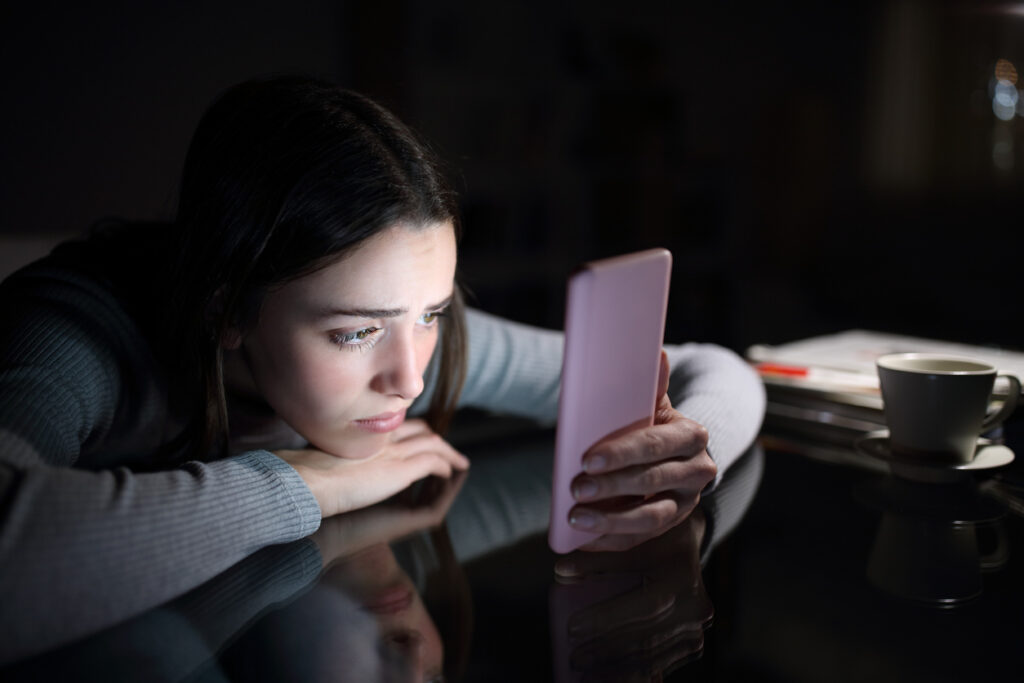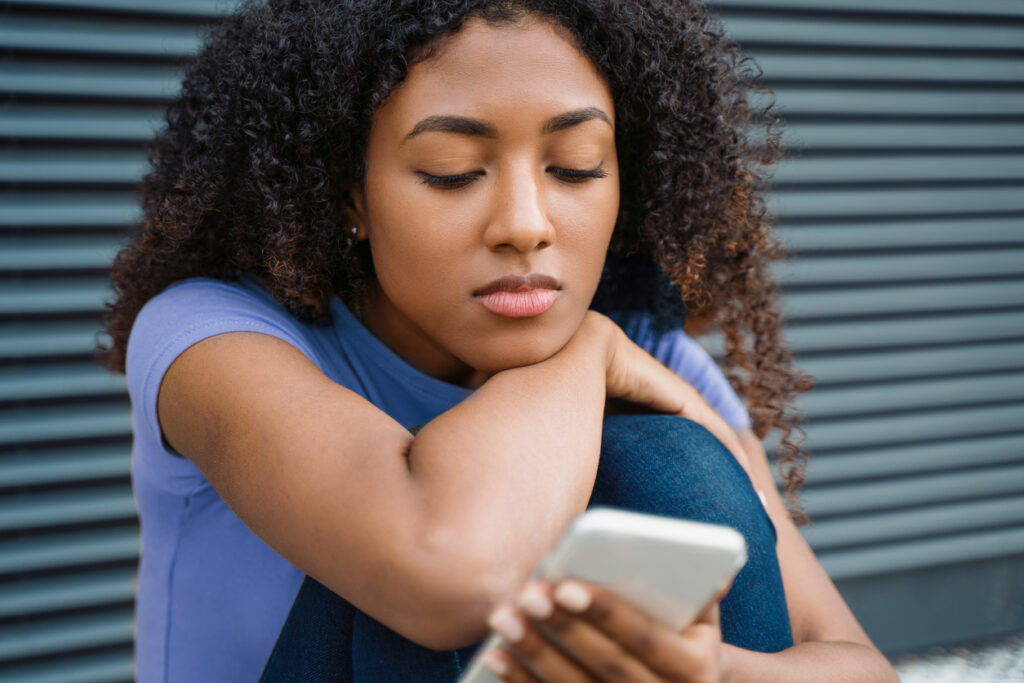
You’ve heard it since you got your phone in middle school:
“Too much time on that thing is going to rot your brain.”
But you know that’s not true. You use your phone every day and you’re totally fine. Your brain, despite the sage predictions of your parents, has not turned to mush. Gray matter is not running out of your ears. You don’t get the shakes when you accidentally leave your phone at home.
Or do you?
A poll conducted by Common Sense Media found that about half of the teenagers in the country feel addicted to their phones. Remember – what that means is that every other person you pass in the hallway at school feels addicted to their phones. They could be exaggerating, but there’s another piece of the poll that’s interesting: just over twenty-five percent of parents say they feel addicted to their phones, too. They’re probably not exaggerating.
That’s why they feel justified when they say:
“You’re addicted to that thing.”
Signs You Might Be Addicted to Your Phone
Let’s back up for a second. When you accidentally leave your phone at home, it’s no problem. If you were addicted, then you’d go through actual withdrawal from your phone when you don’t have it with you. But you’re all good. When you’re phoneless, you don’t feel weird. You can handle it. It’s no big deal.
Or is it?
It might be. Especially if you experience one or more of the following things when you space out and leave your phone charging on your bedside table instead of slipping it into your pocket:
- Nomophobia: The fear of being having No Mobile Phone with you.
- FOMO: The Fear Of Missing Out on important things because you don’t have your phone.
- Textiety: The anxiety caused by feeling you need to respond to every text immediately – which is obviously much worse when you don’t have your phone with you.
- Ringxiety: The false sensation that you received a call or a text, which leads to checking it constantly – which is obviously much worse when you don’t have your phone with you.
- Textraphenia: Similar to ringxiety, but accompanied by physical or auditory (sound) hallucinations, i.e. feeling phantom vibrations where you usually keep your phone, or hearing text notifications when no text has come in – which is obviously more troubling when you don’t even have your phone with you.
Right now, we don’t blame you at all if you’re thinking:
“That’s all made up. Nomophobia? FOMO? Textiety? Ringxiety? Textraphenia? Those things aren’t real. You’re making all that up to scare us into believing cell phones are bad.”
If only.
We wish we were making them up, but we’re not. You can check for yourself. They were coined by mental health and addiction experts years ago, and reported in articles like these ones here and here. And we’re not even mentioning the fact that the last version of the handbook psychiatrists use to diagnose patients – the DSM-V – has brand new classifications for things like internet and video game addiction.
So yes – it’s not officially in the book yet, and the final word is not in, but scientists all over the world believe cell phone addiction is a very real and very serious thing. Researchers at Iowa State University have created a quiz you can take to see if you’re addicted to your phone. You can click this link to see the test online, click this link to read the original research article, or take the test yourself right here, right now.
Nomophobia, a.k.a. Cell Phone Addiction: The Quiz
Respond to each statement on a scale of 1 – 7, where 1 means you strongly disagree and 7 means you strongly agree with the statement. When you’re done, add up all your responses to get your total.
- I would feel uncomfortable without constant access to information through my smartphone.
- I would be annoyed if I could not look information up on my smartphone when I wanted to do so.
- Being unable to get the news (e.g., happenings, weather, etc.) on my smartphone would make me nervous.
- I would be annoyed if I could not use my smartphone and/or its capabilities when I wanted to do so.
- Running out of battery in my smartphone would scare me.
- If I were to run out of credits or hit my monthly data limit, I would panic.
- If I did not have a data signal or could not connect to Wi-Fi, then I would constantly check to see if I had a signal or could find a Wi-Fi network.
- If I could not use my smartphone, I would be afraid of getting stranded somewhere.
- If I could not check my smartphone for a while, I would feel a desire to check it.
- If I did not have my smartphone with me, I would feel anxious because I could not instantly communicate with my family and/or friends.
- If I did not have my smartphone with me, I would be worried because my family and/or friends could not reach me.
- If I did not have my smartphone with me, I would feel nervous because I would not be able to receive text messages and calls.
- If I did not have my smartphone with me, I would be anxious because I could not keep in touch with my family and/or friends.
- If I did not have my smartphone with me, I would be nervous because I could not know if someone had tried to get a hold of me.
- If I did not have my smartphone with me, I would feel anxious because my constant connection to my family and friends would be broken.
- If I did not have my smartphone with me, I would be nervous because I would be disconnected from my online identity.
- If I did not have my smartphone with me, I would be uncomfortable because I could not stay up-to-date with social media and online networks.
- If I did not have my smartphone with me, I would feel awkward because I could not check my notifications for updates from my connections and online networks.
- If I did not have my smartphone with me, I would feel anxious because I could not check my email messages.
- If I did not have my smartphone with me, I would feel weird because I would not know what to do.
[Note: this test cannot give you an official medical diagnosis. Only a doctor or psychiatrist can do that.]
How to interpret your results:
- A score below 20 means you probably don’t have a problem.
- A score between 20 and 60 means you may have a mild problem.
- A score between 60 and 100 means you may have a moderate problem.
- A score above 100 means you may have a severe problem.
How did you do?

If you think you may have a problem – don’t freak out. You can get help, just like you can if you have any other addiction. First, talk to your parents, and get them to make an appointment with a therapist or addiction specialist so you can get a proper diagnosis. You might not have a problem, even if you score high on the quiz. You might need to just dial back your cell phone use a little bit. Since not everyone wants to talk about or admit they have problems like this – especially with their parents – you can learn more online.
The best place to start is at Common Sense Media. Whatever you do, when you take the test, be one hundred percent honest with yourself, and go from there. You might not be addicted to your phone, but at the end of the day, it’s always good to make sure you’re using – and not being used by – your phone.































































